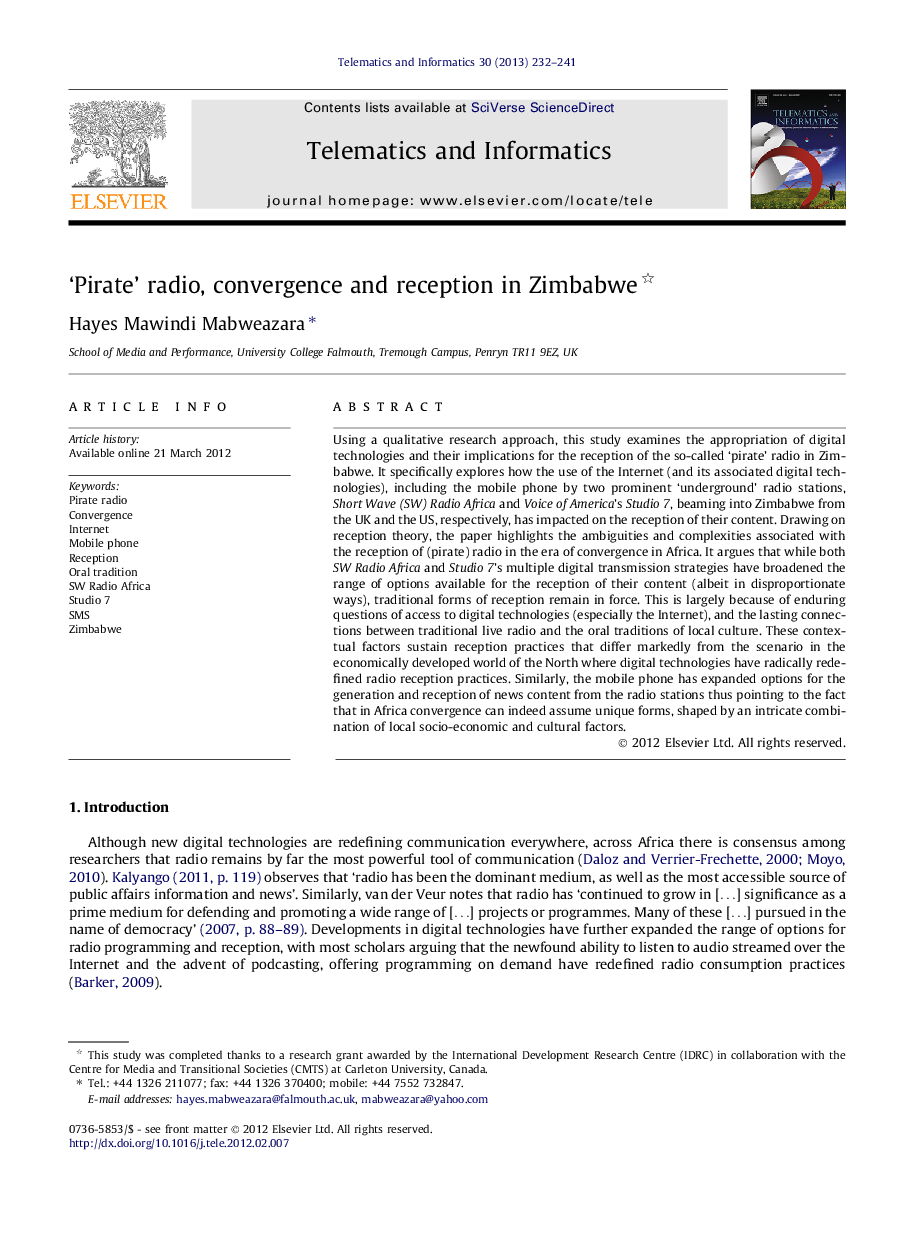| Article ID | Journal | Published Year | Pages | File Type |
|---|---|---|---|---|
| 467073 | Telematics and Informatics | 2013 | 10 Pages |
Using a qualitative research approach, this study examines the appropriation of digital technologies and their implications for the reception of the so-called ‘pirate’ radio in Zimbabwe. It specifically explores how the use of the Internet (and its associated digital technologies), including the mobile phone by two prominent ‘underground’ radio stations, Short Wave (SW) Radio Africa and Voice of America’s Studio 7, beaming into Zimbabwe from the UK and the US, respectively, has impacted on the reception of their content. Drawing on reception theory, the paper highlights the ambiguities and complexities associated with the reception of (pirate) radio in the era of convergence in Africa. It argues that while both SW Radio Africa and Studio 7’s multiple digital transmission strategies have broadened the range of options available for the reception of their content (albeit in disproportionate ways), traditional forms of reception remain in force. This is largely because of enduring questions of access to digital technologies (especially the Internet), and the lasting connections between traditional live radio and the oral traditions of local culture. These contextual factors sustain reception practices that differ markedly from the scenario in the economically developed world of the North where digital technologies have radically redefined radio reception practices. Similarly, the mobile phone has expanded options for the generation and reception of news content from the radio stations thus pointing to the fact that in Africa convergence can indeed assume unique forms, shaped by an intricate combination of local socio-economic and cultural factors.
